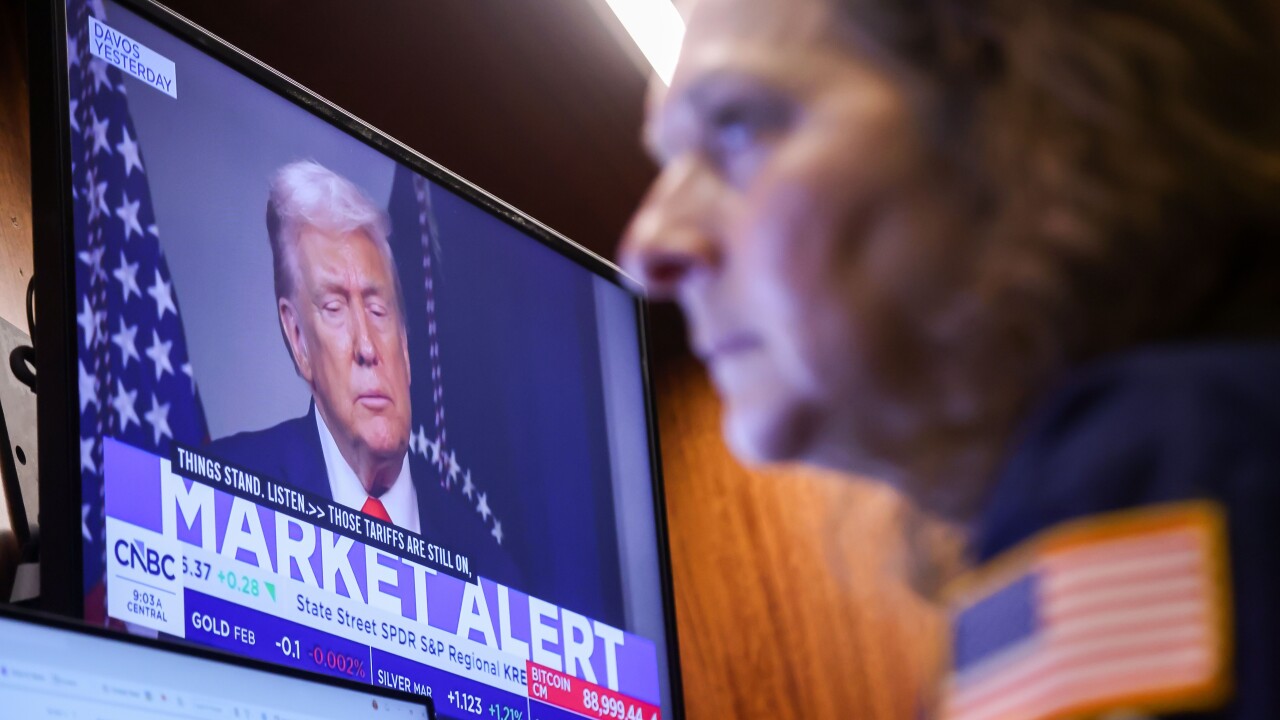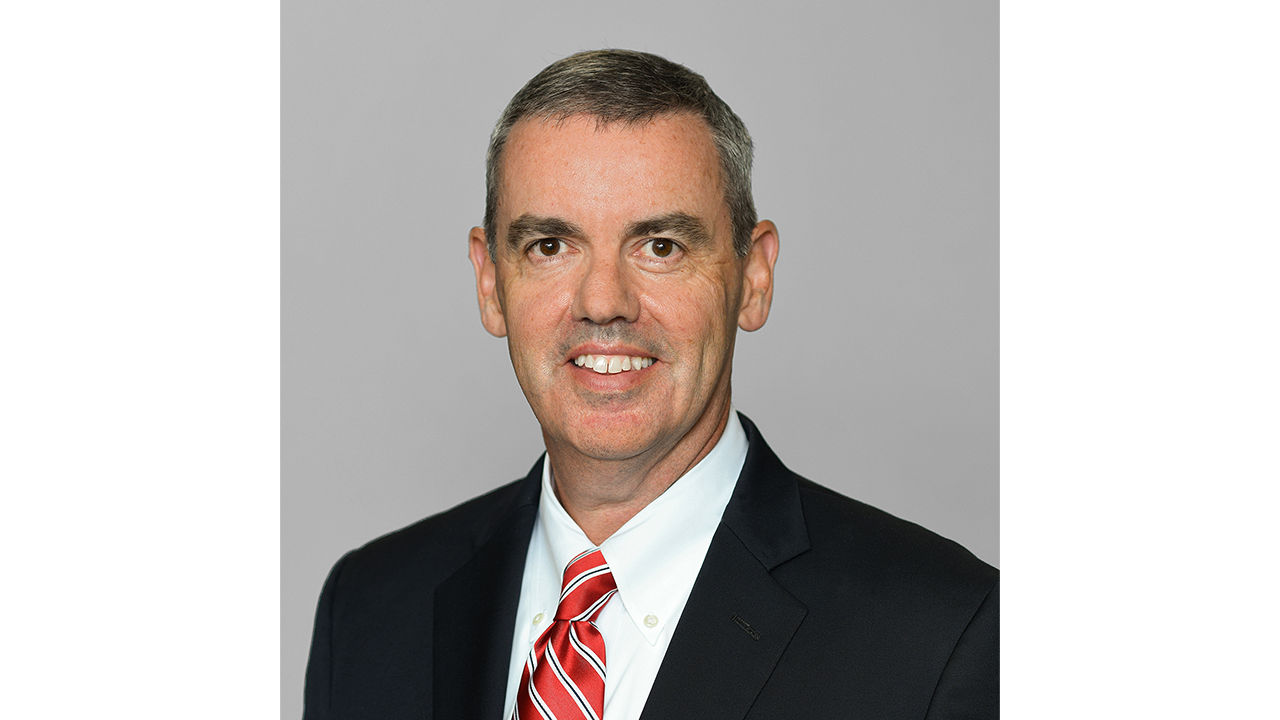-
The Dec. 2 mass shooting has shone a light on the sector's vulnerability to borrowers who, exploiting the absence of face-to-face contact on the Internet, lie on their loan applications.
December 10 -
While government officials acknowledge that so-called derisking, in which banks sever ties with businesses considered high risk, is a growing problem, it's increasingly clear they believe it's mostly up to the banks to solve it.
November 13 -
The Islamic terrorist group that claimed responsibility for the devastating attacks in Paris last week is actively promoting the use of virtual currencies as a funding device, but such currencies are not more vulnerable to terrorist financing than other means, according to the head of the Financial Crimes Enforcement Network.
November 16
WASHINGTON — Many media outlets have underscored the fact that the alleged killers in last week's mass shooting in San Bernardino, Calif., took out a loan from a marketplace lender, implicitly or explicitly raising questions about whether online lenders are more susceptible to being exploited by terrorists.
Yet there's no evidence to suggest Prosper Marketplace, which facilitated the loan, or WebBank, which issued the funds, did anything wrong in lending $28,500 to Syed Rizwan Farook and his wife, Tashfeen Malik. Neither were flagged by the government as potential terrorists and there were no outward signs of their intentions.
"Under the circumstances, the guy takes out a loan, has a steady income, wife, family, it is a stable situation and there is not much there that represents high risk," said Dennis Lormel, founder and president of DML Associates and a former chief of the FBI's financial crimes program. "Regardless of what they had in place, you wouldn't have identified that whole situation," that led to the attack.
Those familiar with online lending platforms also said that they have robust programs in place to weed out nefarious activity, similar to what traditional financial institutions have.
"Every one of them has a pretty sophisticated counterterrorism financing, anti-money-laundering program," said Ben Knieff, a senior analyst with Aite Group, who has spoken to several major online lenders. "The weakness becomes if these guys are not on the watch list, then you are not going to find them."
Farook and Malik were not on the Office of Foreign Asset Control list which identifies people and entities that could be potential security risks, and do not appear to have triggered any other red flags that law enforcement shared with financial institutions.
Brian Knight, associate director for financial policy at the Milken Institute, said that without any information from the government identifying the couple as a terrorist threat, there is not much any lender could have done.
"They are not going to prevent anyone from taking out a loan because of their name," Knight said. "I don't think we would want that."
Lisa McGreevy, the president and CEO of the Online Lenders Alliance, said it's clear that no anti-laundering system would have flagged Farook or Malik.
"If law enforcement doesn't know, we're not going to know," she said.
In a statement, WebBank said it "continually works with regulators to address their inquiries and concerns and will fully cooperate with law enforcement agencies investigating this matter." Prosper, meanwhile, said in its own statement that "all loans originated through the Prosper platform are subject to all identity verification and screening procedures required by law, including U.S. anti-terrorism and anti-money-laundering laws."
But there are still lessons to be learned from the case, according to anti-laundering and terrorist financing experts. Chief among them is that banks and other financial institutions need to monitor news reports and cross-check names that have been associated with a recent terrorist attack with their own systems.
"When the names of individuals associated with a terrorist attack are made public, a good banking practice is to immediately conduct a data scrub against those names, instead of waiting for a request from Fincen or law enforcement, to see if there has been any activity associated with those individuals within the bank, such as an incoming or outgoing wire," said Shannon Bennett, senior director of financial crimes control strategy at Wolters Kluwer Financial Services.
There are also financial transactions that should be looked at after the loan was taken out.
"Some typical triggers could be wires to or from high-risk countries, or a lot of unexplainable withdrawals against a recent large deposit, especially if such activity is unusual for that customer," Bennett said, adding she was not specifically addressing the San Bernardino case.
But even identifying large deposits or unusual activity can be a challenge, said Alma Angotti, a managing director at Navigant.
"Terrorism has always been difficult for financial institutions to identify, especially if it is not somebody on a sanctions list," Angotti said.
Still, the attacks could add momentum to more anti-laundering legislation and potentially give rise to bills targeting marketplace lenders. House Financial Services Committee Chairman Jeb Hensarling said Thursday that he is working on a bill designed to stop terrorist financing, though he left it unclear what areas he wants to target.
"There was already some legislation that we were working on prior to San Bernardino," Hensarling said. "There will be hearings — both public hearings and classified hearings on this matter — and we'll see whether there's a reason to change the legislation that we're getting ready to proffer."
Rep. Maxine Waters, the lead Democrat on the panel, reintroduced legislation on Friday that would hold bank executives personally liable for anti-money laundering program breakdowns. She said the legislation would "increase the deterrent value of our current anti-money laundering and counter terrorism financing framework."
Jaret Seiberg, an analyst with Guggenheim Securities, said the issue may end up being whether "marketplace lenders are too easy of a source of cash to finance terrorist attacks."
"The validity of the question is largely irrelevant," Seiberg said in a note to clients this week. "This is likely to become political, which is what makes it dangerous. As we often write, perception trumps reality when it comes to Washington. So if the perception is that marketplace loans are too easy to get, then that could be seen as true regardless of what underwriting and AML/[Bank Secrecy Act] systems are in place."
In the wake of the attention paid to Prosper and WebBank, Carol Van Cleef, a partner at Manatt, Phelps & Phillips, said the marketplace lending industry needs to communicate to the public about what it does.
"It's very important for marketplace lenders to underscore all the positive things they are doing in order to avoid the kind of false image a headline can create about the industry's exposure to money laundering and terrorist financing risks," she said. "As a practical matter, more likely than not, marketplace lenders are getting more information on their customers and doing more customer due diligence than many other types of financial services providers."
Kevin Petrasic, a partner at White & Case, also said that the U.S. has a "fairly robust system" for preventing money laundering and terrorist financing and it is difficult to strike a balance between a system that is safe and one that functions efficiently.
Too many burdensome regulations could actually play into terrorists' hands. "It is ultimately the goal of terrorists to disrupt the financial system as well as try and promote terrorists' activities," Petrasic said.
Experts agreed, however, that the potential for more terrorist attacks emphasizes the need for the partnership between the private sector and law enforcement.
"With San Bernardino … the information that continues to pour in from [the financial sector] to us is really key to advancing our investigation," Jerry Roberts, section chief at the FBI counterterrorism division, said Wednesday during an Association of Certified Anti-Money Laundering Specialists event. "The financial intelligence generally speaking and in particular this case allows us to identify those associates we may not have known about before."
Victoria Finkle contributed to this article.





